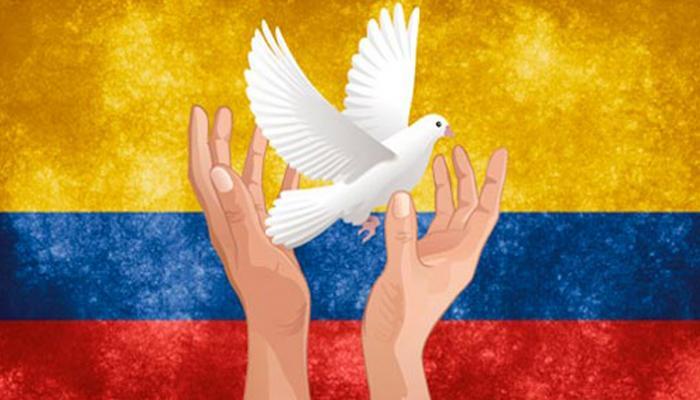Havana, January 23 (RHC)-- Colombian politicians have said the decision of Cuban authorities to honor existing protocols after the rupture in peace talks between the Colombian government and the National Liberation Army (ELN) is correct and in full compliance with international law.
Colombian president Iván Duque decided last Friday to end the already fragile peace dialogue with the ELN and re-issued arrest warrants against the negotiators of the Colombian guerrilla stationed in Havana, Cuba, after the insurgent group claimed responsibility for the January 17 car bombing at a Bogota police academy that killed 21 people and left dozens more wounded.
However, ELN peace negotiators in Cuba denied any involvement, nor advance knowledge of the attack. In statements to Prensa Latina news agency, ELN head peace negotiator Pablo Beltrán said: “Our task in Cuba is to advance peace negotiations. We have neither advance knowledge of nor involvement in events taking place in Colombia.”
Cuba’s Minister of Foreign Affairs, Bruno Rodriguez Parrilla, reiterated, through his official Twitter account, that Cuba will act in strict respect for the Peace Dialogue Protocols signed between the Colombian Government and the National Liberation Army (ELN).
According to Colombian press, the signed Protocols establishes that in case of the breakdown of the peace negotiations there is a time frame and guarantees for guerrilla leaders to return to Colombia’s jungle or mountainous region, with the assistance of the International Committee of the Red Cross. The Protocols explicitly prohibits government military forces from attacking the guerrilla leaders during the transfer.
In statements to El Espectador, Alejo Vargas, director of the Center for Thinking and Following the Peace Dialogues of the National University of Colombia, criticized the stance of Colombian president Ivan Duque and urged him to abide by the signed Peace Dialogue Protocols.
Vargas said: “The government has to let the ELN peace negotiators return here to Colombia and only then, the government has full authority to issue arrest warrants against them and bring them to justice. But, on principle, they have to abide by the signed Protocols as agreed upon by the ELN, the Colombian government and the guarantor nations --in this case Norway, Cuba, Chile, Venezuela and Brazil.”
Vargas warned that if the sides in the conflict do not honor the signed Protocols, no third country or party would commit to serving as guarantor of peace negotiations anywhere in the world.
Moisés Wasserman, a professor and researcher with the National University of Colombia, told El Espectador that ignoring the Protocols would constitute a big, serious mistake. “It would turn any future resumption of peace negotiations simply impossible. Honoring the Peace Dialogue Protocols is not an option. It is an obligation.”
Meanwhile, Frank Pearl, former Colombian High Commissioner for Peace, who served also as a member of the government's negotiating team during four years of peace talks with the former Revolutionary Armed Forces of Colombia (FARC) in Havana, told Semana that “signed Protocols must be honored.”
“In all peace processes the sides define and agree on Protocols to be implemented in case of any breakdown of the negotiations. Whether we look at the Tlaxcala talks in Mexico, the El Caguan peace talks in Colombia, from 1999 to 2002, or the peace process between the ELN and the government of former Colombian president Álvaro Uribe, they all had Protocols, which cannot be violated regardless of the events that led to the breakdown of the peace negotiations.
“Otherwise, it would be impossible for two enemies to sit face-to-face and negotiate,” said Pearl.
Former Colombian Interior Minister Guillermo Rivera told El Espectador: “I agree that ELN guerrilla should face justice for the car bombing attack, but that does not imply asking another State to violate a Protocol that was agreed before the peace talks were even started.”
Juanita Goebertus, a representative of Alianza Verde and former peace negotiator for FARC-EP, issued a communique noting that the UN Security Council has not asked Cuba to violate the Colombia Peace Dialogue Protocols.
She said: “The UN, which has mediated in countless peace processes around the world knows that without the Protocols, this return mechanism, no one would engage in peace negotiations. The UN Security Council did not criticize Cuba or the Protocols. It didn’t even refer to it.”
The UN Security Council issued a communique Friday, terming any terrorism act as “criminal and unjustifiable”, regardless of who the perpetrators are or their motivations. It also urged all States to fight terrorism and those who perpetrate these acts by all means within law.
Colombia’s Common Alternative Revolutionary Party, the political successor of the former rebel group --the Revolutionary Armed Forces of Colombia (FARC)-- also raised their voice to urge the Colombian government to honor the Peace Dialogue Protocols signed with the ELN.
A communique issued by FARC’s National Political Council and reported by Russia’s Sputnik, states that the extradition request against ten ELN members constitutes undue pressure on the guarantor nations, particularly Cuba, which “has spared no effort in its support for Colombia peace process.”


